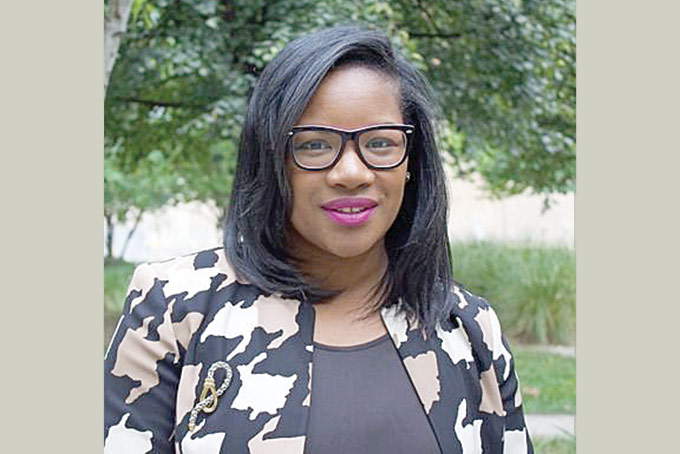by Juliette Ruhl, PublicSource
DIAMONTE WALKER serves as the URA’s deputy executive director.
At its Dec. 19 meeting, the board of the Urban Redevelopment Authority approved financing for Phase IV of the Larimer/East Liberty Choice Neighborhoods development, loans for affordable housing in the Middle Hill District and a grant for a small business credit building program. On Jan. 9, 2020, the board is set to vote on the 2020 allocation for the $10 million Housing Opportunity Fund.
The URA board approved financing for Phase IV of the Larimer/East Liberty Choice Neighborhoods development. Phase IV will use three financing sources: a $650,000 loan from the Housing Opportunity Fund’s rental gap financing program, a loan of $2,094,150 as part of funding already allocated from the City of Pittsburgh, and a grant of $1,774,122 from the Housing Authority of the City of Pittsburgh. The development phase will consist of refurbishing Larimer School and building seven new units across the street. Of the 42 units created, 13 units will be reserved for households making 60 percent of area median income (AMI), 22 units will be reserved for households at 50 percent and below AMI. Seven units will be market rate. URA Housing Development Director Tom Cummings said earlier phases of the Larimer/East Liberty Choice Neighborhoods development focused more on East Liberty. “This will now have a significant footprint in Larimer.”
The URA announced the draft of its 2020 Hill District Coordinated Community Development Work Plan. The plan outlines “how we’re going to ensure coordinated community development in 2020 in partnership with the Hill District community,” Diamonte Walker, URA deputy executive director, said. The URA board requested the creation of the plan in October after the Hill District community submitted a letter to the board about the redevelopment of the former Civic Arena site. The plan was created after two working sessions coordinated by URA staff and the Hill District Community Development Corporation. It outlines actions for the URA to take to maintain community involvement, including quarterly meetings with the URA and the community. The draft will be available on the URA’s website for 30 days for Hill District residents to provide public comment.
The board approved two loans totaling up to $250,000 to Catherine Terrace, LLC to build eight rental housing units—four one-bedroom and four three-bedroom units—in the Middle Hill District. All units will be affordable for households at 80 percent AMI. Walker applauded the development for including three-bedroom units, which she said only a few other recent affordable housing projects have included. The project’s developers are Hill District residents Ernest Darby and Emma Lucas-Darby. “It’s been a long road getting to where I’m at right now,” Darby said.
The board authorized a $100,000 grant to the business incubator Riverside Center for Innovation in partnership with Axiom Advancement Corporation and the online crowdfunding platform Kiva Pittsburgh for a credit building program for small businesses. The program will match 0 percent interest loans from Kiva Pittsburgh for up to $5,000. In all, that makes up to $10,000 available to small businesses to start building credit.
The board approved a real estate transaction with the state that will allow the URA to acquire Hunt Armory in Shadyside. The end goal is for the armory to be repurposed into an ice skating rink, as per the community’s wishes, said URA board chair Sam Williamson.
The board approved initial steps for nonprofit service provider Bethlehem Haven in Uptown to rehabilitate its existing 26-unit facility and build another 32 adjacent units for residents who complete their programming but still need supportive services. All 32 units will be affordable for households at or below 50 percdent AMI.
(Juliette Rihl is a reporter for PublicSource. She can be reached at juliette@publicsource.org.)
